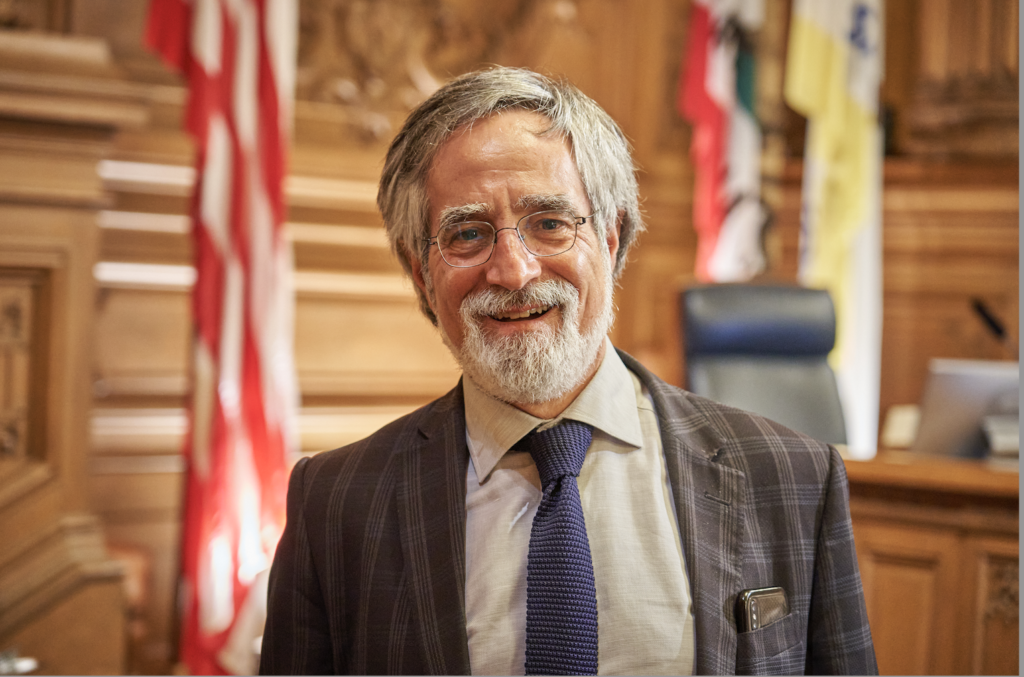For the first 45 minutes of the mayoral debate hosted by the Democratic Party last night, it was as if nothing mattered in San Francisco except more cops, more arrests, more crackdowns.
Those were the questions we heard from the moderator, KRON reporter Terisa Estacio, based on what the Democratic Party, which hosted the debate, and its affiliated groups submitted.
It was kind of crazy: Four of the five candidates talked about more cops, more money for cops. They said that the solution to downtown revitalization, to encouraging tourism, to dealing with all of the city’s economic problems was about law enforcement.

“Public safety is the number one issue in San Francisco,” Mark Farrell said. “We need to fully staff our Police Department,” said Daniel Lurie, who talked about how the city managed to “clean up” downtown during the Super Bowl and other corporate events. (That meant sweeping homeless people out of the area, with no place for them to go except into the neighborhoods.) He said “we need to get tough” with drug dealers.
Mayor London Breed said (truthfully) that crime is down, and that she has put an additional $200 million into the Police Department. She talked about 3,000 arrests, but didn’t mention that the crime narrative that might cost her the job was something she started, in part to get rid of a district attorney she didn’t like—or that her policy has overwhelmed the jail and the court system.
Sup. Ahsha Safai said that we can’t revitalize downtown unless the streets are “clean and safe.”
Then, finally, the discussion got to housing and zoning and neighborhoods. Sup. Aaron Peskin had to force that a bit, by turning a question about revitalizing downtown into a statement that some of the mayor’s neighborhood rezoning could lead to “displacement and the doubling and tripling of rents” for local businesses.
But finally, Estacio asked about the affordable housing crisis.
Breed, Farrell, and Lurie again took the same line: “We cannot be afraid of growth,” Breed said. “We have to be relentless in our policy to stop saying No and get to yes.” For market-rate housing.
Farrell: “We need to build housing across the board.” (There is no way private developers will build anything but high-end housing.)
Farrell also said he wants to reduce the affordability requirements on for-profit developers and repeal the transfer-tax hike on high-end properties, which is a key source of money for affordable housing.
In fact, Peskin finally came out and said it: “The idea that if we build a lot of any kind of high-priced housing that prices will drop is horsepucky.”
There’s new evidence to support that argument.
At the end, the candidates got to ask each other questions, which revealed some interesting strategies. Farrell asked Safai a total softball question about the supervisor’s proposal to pay off student loans for people who want to be cops and firefighters; it was clear he was trying to get second-place votes from Safai supporters.
Peskin asked Lurie if he had supported Prop. C and Prop. I, raising taxes on big business and the rich to fund housing. Lurie: “I stayed out of it,” which means no.
Breed asked Farrell to name three LGBT advisors and three drag queens. He couldn’t do it. “I’m not going to revisit the drag-queen question,” Farrell said.
This race, I think, will come down to whether the voters care about nothing but the false media crime narrative, or about the wide range of issues facing the city. That’s what this debate showed us.
Full disclosure: In case there is anyone in San Francisco who doesn’t already know this, both my son and daughter are working on the Peskin for Mayor campaign.




